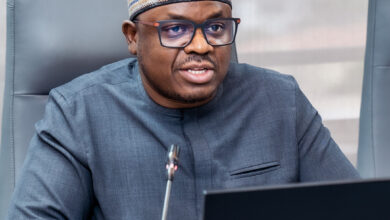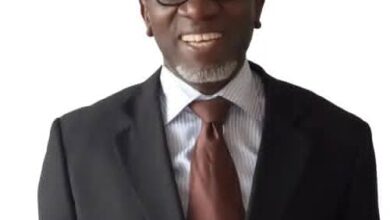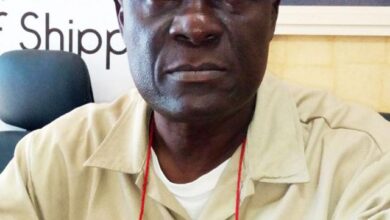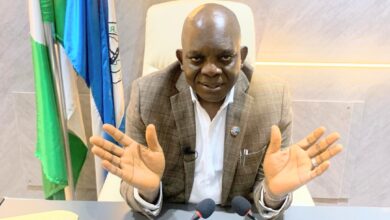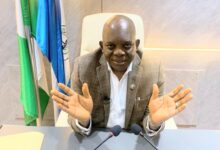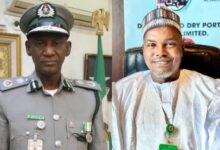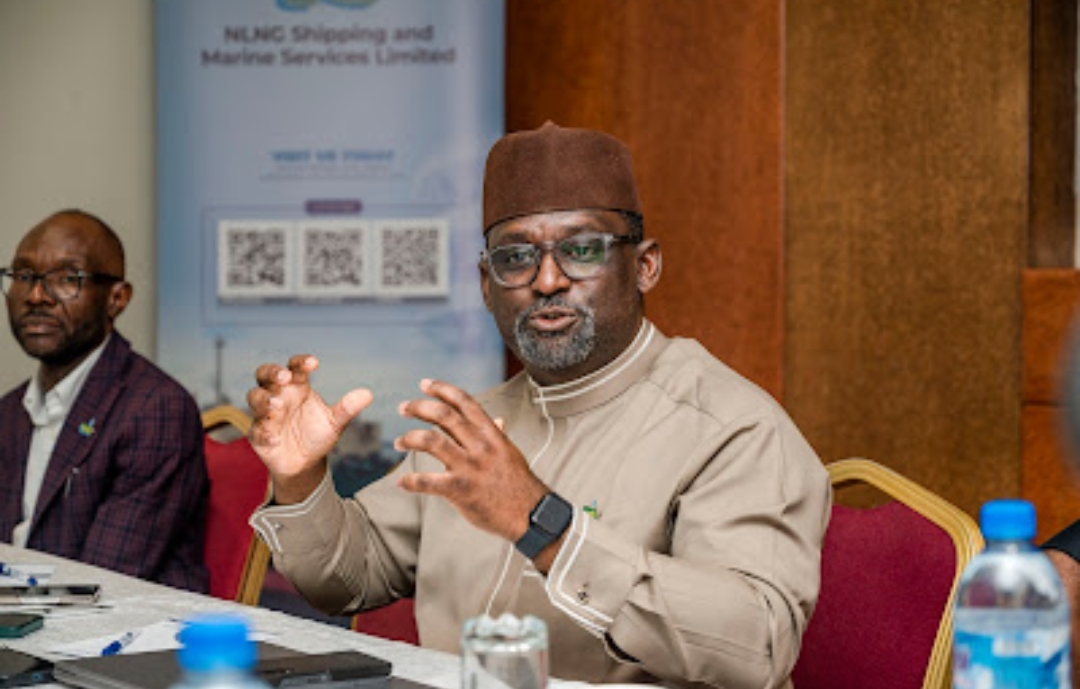
NSML Breakthroughs: From Being Highest Employer of Nigerian Seafarers to Clinching UK MCA Accreditation
NLNG Shipping and Marine Services Limited’s (NSML’s) Maritime Centre of Excellence (MCOE) has become the first training centre in Africa to receive the highly sought-after accreditation from the UK Maritime and Coastguard Agency (UK MCA).
This achievement allows the Maritime Centre of Excellence (MCOE) to deliver and issue certificates for the STCW 2010 Electronic Chart Display and Information System (ECDIS) and Basic Liquefied Gas Tanker Cargo Operations courses, placing it among globally recognisedmaritime training institutions.
The UK MCA, an agency under the UK Department for Transport, is renowned for regulating maritime standards and safety worldwide. Its accreditation is often referred to as the “Gold Standard” in maritime training, a mark of excellence that underscores the quality of the MCOE’s programmes.
Reacting to the accreditations, NSML’s Managing Director and Chief Executive Officer, Mr. Abdulkadir K. Ahmed, said achieving this certification was no easy feat as the centreunderwent a rigorous two-year review process, during which it was thoroughly evaluated against stringent international standards.
He emphasised that the accreditation confirms that the MCOE’s courses are not only in line with global best practices but also crucial for enhancing maritime safety, modern navigation, and operational efficiency.
Mr. Abdulkadir K. Ahmed expressed immense pride in the certifications, stressing that it was a significant milestone for both NSML and the maritime industry in Africa.
“Earning the UK MCA accreditation is a testament to the high standards we maintain at the MCOE. The accreditation has been a key objective for the MCOE since its inception.
“This accreditation allows us to offer the accredited courses, not just to our crew but to seafarers across Nigeria and beyond. With this milestone, we expect that seafarers will no longer need to travel overseas to renew their certifications, leading to significant savings in both travel and recertification costs. This achievement aligns perfectly with our growth and sustainability goals, positioning the MCOE as a fully-fledged, advanced maritime training centre, accredited to provide top-tier training and competency development programs for seafarers in Nigeria and Africa,” he said.
The newly accredited courses are vital for seafarers globally, as they are mandatory for those aiming to advance their careers and ensure safe operations at sea. With this accreditation, NSML’s MCOE is poised to become a leading hub for maritime training in Africa.
Abdulkadir spoke to reporters during a parley in Lagos
Excerpt
We assume we know the core business of NSML, which is shipping. But you have gone into training, developing a training institution. So what’s the reason for that?
Shipping business is a highly technical business. But the foundation of that business, it’s about competence. It’s about competent people, you can have ships they will not move themselves, people ultimately run vessels and due to the nature of shipping it’s important that those who are running vessels are competent. So, for us training isn’t just simply a side activity, it is fundamental to who we are in the shipping business. That ability to attract, develop competent seafarers who can manage vessels safely reliably and efficiently is very, very important, so that’s really the essence of it.
The Maritime Centre of Excellence (MCOE) isn’t just a training institute, it is a Marine Project Consultancy and Training outfit, so it goes beyond just training because obviously, competence is a marketable skill especially when it comes to shipping and the MCOE is that entity within NSML that is able to provide that service of course, being the ability to provide that service requires that you have competent individuals that are constantly being trained, kept abreast of new developments so that they will continue to effectively and efficiently manage our assets as well.
Is it just for NSML or open to other shipping companies to access its services?
Just to give you a perspective and I’m sure you’ve had this before in terms of the evolution of NSML as an entity.
Why was it created in the first instance? Before NSML was created, before even NLNG, the first train was built, the NLNG shareholders acquired vessels and those vessels were manned and managed offshore. So NSML was created with the sole purpose of domesticating international maritime skill sets, locally; and providing opportunities for Nigerians to participate in that sphere.
And when it was created, it was created purely from a manning point of view. So it was NLNG Ship Manning Limited. Basically that entity that employed the seafarers developed them and then deployed them onto vessels. And part of that evolution as we went along, the next step, of course, is to now take over the technical management of the assets, the vessels themselves, an activity which was done by foreign companies offshore. The same process of development went through where people were developed, capacities, competencies and capacities developed and once we got to that level where we were comfortable we now took over the technical management of the vessel and when we did that NSML then evolved into NLNG Ship Management Limited.
As we went along, we then took over the technical management of the Bonny Terminal, and went further to set up the Maritime Centre of Excellence, which is a training consultancy and project management entity.
The entire business was centered towards providing services in-house but the evolution of the company entailed that once we are able to provide those services in-house we then be able to now branch out and be able to provide those services externally and that also really led us to looking at our vision which is really centered around being a leading integrated and international maritime services company, supporting the growth and development of the Nigerian maritime industry and the best way we can do that is to reach out to the industry and work with the industry and provide services to the industry. So to cut a long story short the activities of NSML isn’t just simply limited to Nigeria LNG. Of course, NLNG will always remain a core customer but our services and activities cut beyond NLNG energy and also it is open to third parties within the Nigerian and African energy logistic business.
There was no need for us to be sending people abroad for training let us domesticate the training centers as much as we can. Yes, it was a lot of investments but then we did it and then we were able to domesticate and get all the accreditations . In terms of saving Nigeria, a lot of foreign exchange which were been used to train people abroad, the training is now brought home. So that is value addition to the economy.
How much of this cost are we talking about here?
I think yesterday I was talking about NIMASA training people all over. Now we are bringing this training home and now you have to do this training in Nigeria so now we bring the general cost down
You know by domesticating the training you cut 70% of the cost. Because usually the costs are usually your flights, your estacodes, your living expenses there. And even the training costs, the cost there is quite high.
But if you can cut all of that out, you can then cut the training to at least 30%. In our own case, what we had even seen that it has even created access for more people to train at once. For example if you have a budget to train a certain number of people that you have to send abroad you can only do about five or so but if you domesticate the center you cut the cost by 30% and then, you can train a lot more people.
We have other IOC’s or external bodies coming to us because they have seen exactly the same value and also cutting their costs. So, it helps and then you get the same international standard,
What is a rough estimate of the cost?
Again, these are internal estimates what you’re talking about in shipping training is not static it’s a continuous process so you can’t even just simply say, I’m putting a number today. Because certification, recertification, is a continuous process. And what it gives us is, for our people to continuously being trained and kept abreast of new developments.
As we said, the industry is evolving very fast. Changes are happening and what you knew yesterday may have changed today and you need to relearn and learn again. So it’s really not putting financial value to it but it’s about the value or the qualitative value of having the ability to continuously train and develop your people.
Let me also make something very clear. We are not saying that MCOE will completely remove the need to train people overseas. No.
And part of that is what I’ve always indicated, that the shipping industry is an industry based on international standards.
What you do in one location is exactly what’s being done in another location. And sometimes part of that training is about also working or being involved in certain training at different times so that you see what they do and you validate what you equally do to be sure that you are doing it in accordance with the global standard. So, we still send people abroad to train, however the MCOE provides the veritable institution locally.
The accreditation of MCOE courses will come with challenges, how are you prepared to handle them?
The element of accreditation is not just simply looking at your curricula. It’s about looking at your readiness so when the MCA came to audit the MCOE, they were looking at the readiness of the institute to effectively and qualitatively provide those courses.
If they felt we were not ready, if we did not have the capacity, it doesn’t matter that the curriculum is good, they wouldn’t have accredited us. So, in terms of readiness, absolutely, we are. We wouldn’t have gone for accreditation if we were not ready. We are a training center and we’ve identified those programs, those courses that we have the capacity and the facility we went for that accreditation.
And when we went for that accreditation that was what they came to evaluate. Not just simply the curriculum, but equally the physical capacity to effectively provide those courses. So the accreditation itself tells you that, we’ve been adjudged by a stringent, independent auditor to be capable.
So we are not concerned about whether it will bring the challenges or we were not ready. We are ready and that was why we went for the accreditation.
One of the things that we’ve always said, is that shipping is like an international profession and then you have to have international standards.
I was one of the founding staff of the MCOE, we sat for an entire year just developing the processes and the structures to actually get it to that gold standard level. MCOE accreditation is one of the highest standards you can ever see. We had support from a parent company and all of that to be able to actually achieve it, so when it came to the audits and the audit itself was just a test of your own process of that course. Everybody that came to do audit had said, this is absolutely fantastic. This is world class. And it was very easy for MCA to just come. They did a desktop review, and they had zero comments. And then they had the auditor come over he was absolutely blown away.
But then there was a lot of work at the back end just to get to that kind of standard. There are a lot of investments, a lot of hard work, and it took us about two to three years to get all the docs in a row to actually get that accreditation. So again, the accreditation is just a testament of our standard and nothing more.
I think one of the errors that we see is that you see people running after accreditation without really focusing on the standard and I think it should be the other way round, you spend a lot of time getting your standard up and then you can worry about accreditation later. For us that is critical because again we have assets, we have vessels that is why it’s quite important for us.
Looking at this now, how much impact do you think this training will have in marketing Nigerian human capital abroad and where do you see NSML in the next 10 years?
I have said, now it has reduced about 70% of the cost of training.
So, let me start with, what I would suggest is in my field, my area of expertise, which is where I expect NSML to be in the next 10 years.
And remember when we started, I narrated to you the trajectory of where we are coming from. Because I always said, where you’re heading to, does not happen in a vacuum. It depends on where you are coming from. NSML as an entity started out as a ship manning entity and we then evolved into a ship management entity.
And now we are an integrated marine, shipping and marine services company being able to provide a plethora of shipping and marine services. I don’t want us to end up assuming NSML is a training entity no, maritime training is an aspect of shipping and marine services so where do I see NSML in next 10 years? basically we are already on that path towards being an integrated shipping and marine services entity able to provide all the plethora of shipping and marine services both offshore and internationally. Of course our core business still remains the technical management of vessels, that is the foundation of our business and we’ll continue to do that but part of our growth and diversification is to go into Terminal Management which we are already in, in terms of Marine Projects and Consultancy, which the MCOE is into, vessel design, construction supervision, all of those activities that we are into. We’re equally expanding into offshore support. Tugboat services, we already manage the marine crafts, marine services in Bonny and that’s also an activity that we intend to expand into and we’re doing to grow beyond who we are today to be a full-fledged integrated shipping and marine services company able to provide services both onshore and offshore, and internationally.
What does that mean? Like I said, we are a shipping company, we are a marine services company, but we’re also clear in terms of where we are playing. We are in the energy logistic business. We’re not in a container business, our sole purpose is to enable those in the energy business move products from one location to the other and that’s what we’ll continue to do and the whole essence of it is that we will grow to become the number one, we are the number one LNG, technical shipping and marine services company in Nigeria today, but the idea is to grow beyond Nigeria into West Africa, across Africa and internationally. And we are on that path already.
What are your challenges? Are you into training of cadets? If yes, I want to know why NIMASA is sending out cadets out of the country for training?
Let’s talk about challenges. We see the shipping and marine business as a business like any business with opportunities and with opportunities, come challenges. However, our role is to simplify challenges. So, there are challenges obviously within the context of shipping challenges and those challenges are not peculiar to us. It is an industry set of challenges. One of them is regulation; fast evolving regulation. Regulations are changing. New regulations are being put in place.
There are also the peculiarities of the ease of doing business in Nigeria but like I’ve always said, the essence of business is to find solutions to challenges because if there are no challenges, then we won’t be in business so those challenges from our point of view are also opportunities. For example. Nigeria is a country with more than 200 million people.
From the last count, I think 60% are below the age of 30. So we have a large pool of young people that have the capacity to be seafarers. It’s about providing them the opportunity.
So yes, there are challenges of skilled manpower. The training center is basically aimed or targeted at at least addressing some of those challenges.
We cannot do it alone, but at least we are contributing to that. A regulation, that’s the beauty of the industry, it is a highly regulated industry and rightly so because safety is critical, reliability is critical and therefore it has to be regulated because any mistake could be catastrophic.
So there are regulations and part of why we are in business is ensuring that we take those regulations take those standards and ensure we fully adhere to them so on one hand yes there are challenges but ultimately that’s why we’re in business the ease of doing business is a reality in any environment. But the beauty is the government has recognized that the role of government is to create an enabling environment for business to thrive. And the ease of doing business is something that is constantly being addressed. Whether it is with the regulators, whether it is in the local environment, it’s something that we all have to adapt to and show we find a way to make the best of it
Can your vessel compete with international flags?
Absolutely, we are already competing internationally right we’re not just simply competing on cost but also on quality and competence.
Are you ready to attract foreigners to train at your centre?
So, first thing first, is a Nigerian phrase. Charity begins where? At home! Exactly, we’re not saying we’re not open to foreigners coming to train, but the idea is let’s again go back to that original purpose which is domestication of those skill sets right. Definitely there’s no reason why foreigners cannot come.
We’re in discussions but ultimately the bulk of our spaces will be for those who require it the most, which for us, we believe, are Nigerians. I’ll give you a typical example.
We have a Nigerianization objective, which we’ve attained as 85% of the seafarers on our vessel today are Nigerians. it was a deliberate effort on our part to say, we’re a Nigerian company and in line with our purpose we want to domesticate and you cannot domesticate by simply importing foreigners to do the job so it’s about developing people locally and giving them the opportunity and that’s why 85% of our seafarers today are Nigerians, from the highest to the lowest level.
Mind you, we have 100% capability. 5% of foreigners is just to allow cross-fertilization of ideas by bringing some foreigners into our operations.
There are three phases. You have the academic phase and then you have the practical phase. We are working with the NIMASA on the practical phase already.
We can do certain aspects of it, but then we can do the full practical phase. So we have partnered with NIMASA, and we are giving them that see-time training that is required. But then they still would need to do the academic side, which they are doing which is what NIMASA send them abroad to do.
We have covered some of them, and we are still expanding to cover the bulk of it. But just to correct that impression, we are working, expanding to cover the bulk of it. We are working with NIMASA on covering part of that training.
When NIMASA sends cadets to maritime institutions abroad, it is to have that initial certification the COCs, now to get the COCs you have the academic COCs will be like your degrees. We’re not a degree awarding institution. They do the academic phase, which is maritime academies, and then they do the sea time, which we’ve been working with NIMASA providing cadets with sea time on our vessels which is practical. When you get the COC now that qualifies you to be a seafarer but then the certifications we’re talking about are additions as you move along. it’s the steps above the COCs that’s the area that we play so we usually say we are an advanced maritime training center not the primary.
If you want to work on gas tankers there’s a certain type of training you need which is what we are going to be doing, you want to work in offshore the same thing, when you want to work in container ship is a different set of certifications.
So, we are a specialized training institution on all types of energy logistics from offshore to normal tanker vessels
How many vessels do you have under the management of NSML and how many cadets have benefited under your seating training in vessels?
That’s an easy one. So currently we have 11 LNG vessels under our management and two LPG vessels that is, 13 under our management of course the goal is to expand.
I am sure some of you remember recently we took over the technical management of one of the most advanced LNG vessels in the world and these are new vessels really that are cutting edge in terms of efficiency, decarbonization, carbon emission.
So we are one of the few ship management companies that have those kind of vessels under our management today. We’re hopeful we’ll take a second one sometime next year.
But most importantly we are equally diversifying our vessel, the type of vessels that we manage, which is why we have now moved into managing LPG vessels. We have two vessels under our management.
We are hopeful because LPG again is something within the African setting we believe is a good area. So we are quite hopeful that in the next year or so we believe is a good area so we’re quite hopeful that in the next year or so we’ll have a couple more coming to our management.
With regard to the number of cadets that have been on our vessels, it’s over 200 in the last six to seven years we typically do between 40 and 50 cadets a year.
What are you doing about GOG, greenhouse gas emissions, and other climate change?
When it comes to the regulations around decarbonization, greenhouse emission, the whole essence of it is to create efficient shipping that pollutes less.
And the IMO has provided a guideline or target which is about net zero by 2050 compared to the level where we are at 2020. So it’s not just us. The entire shipping industry is looking at that. There are rules for you to be in business, you have to adhere to those regulations and there are two ways about it one of course is in the way you operate as a low-hanging fruit changing the way you operate whether it is in just making sure there are no delays, because every delay affects your efficiency, whether it’s in the kind of bunkers that you use. For us, like we said yesterday, all our vessels today operate 100% on gas. And gas is a lot more efficient than oil.
So there are various activities that we’re looking at in terms of how we operate, and we see how we operate using existing vessels. However, despite all of that, as those regulations become stringent, the existing vessels will require significant changes to comply.
Part of those changes could be to refit certain engine, certain equipment and stuff like that or you may have to replace.
And new vessels are being built that are more efficient better equipped in terms of greenhouse gas emission and stuff like that so you’ll find a lot of companies are going through a fleet renewal process, replacing old vessels with newer technology vessels which is what our parent company has also embarked.
So there will be that process. But for us as technical managers, our role is first of all to see the assets that we have under our management, how we ensure we change the way we operate. We are already applying a lot of efficiency measures. So our top vessels, instead of being run by diesels that generate more CO2, we use what we call short power, which means we plug electricity and then it reduces emissions by more than 70%. Again, I’m already planning to have, for example, electric tanks.
So that plan is already in place for us. In addition to further measures, we are going to digitization. Digitalizing these means to operate our vessels, which all those are already now VTMS, so we can monitor everything; so applying just the time as it says.
So now there’s no wastage in the way we operate . And that is why we have what we call the Equal Port Certification. Equal Port is an international certification for terminals that indicate that we have the highest standard of environmental management and we are the only company or organisation that has it in Africa . It’s a global certification because of the way we operate emissions and emission reduction. It’s now a very stringent regulation, especially for those vessels that go on international waters.
So if we do not go through all these items our vessels will be banned. It will get to a stage where they will not be able to go into European waters. So you need to know that it is now a regulation you have to abide by . In fact, they have bandings that the vessels are supposed to be and if you are on an inefficient band, you lose your certification and that’s the way it works so we have a dedicated team that sits down and looks at decarbonization we have committees even all the way to the highest level just keeping an eye on that because it’s actually quite serious business with us.
Looking at the gender balance, I want to ask if there is a place for female seafarers and maritime professionals in your organization and what percentage are you giving to this?
Excellent question because for me, I am a diversity champion within the entire group. I am a diversity sponsor as well.
Unfortunately, our industry has been too male-centric over the years, the shipping industry is too male-centric globally and I will give you those statistics. I can definitely throw the statistics globally less than three percent of the seafarers are women. I say globally okay, so it’s not just simply a Nigerian issue; it is not an NSML issue it’s a global issue. And there are reasons behind that, the contract, the sea. Being at sea is difficult in the simplest of all terms. However, there has been a concerted effort at attracting the female gender into seafaring.
We at NSML are taking the lead in Nigeria on that. In terms of average number of seafarers on our fleet female, we are at slightly above the global average at the moment, which is not good enough. Let me be open and frank about that. It’s not good enough. And therefore, I’ve always said diversity is an active term. It’s not a passive term. It’s not something you just wish.
It’s something that you have to act upon. And we’ve started that process. So we have targets and the target for us in the next five years is to push towards having at least 15% of our seafarers being female. I say in the next five years. You can’t just pluck them from the air. You have to start from the bottom. And I will tell you that currently, when it comes to cadets that go onboard our vessels, over 25% are female. That’s a starting point. Now, after that then you have to create the conditions for them to want to be at sea and that comes into the condition of service that comes into your harassment and bullying policies which we’ve put in place. We provide PPEs the uniforms uniforms. Hitherto you go on board and you see a lady wearing a man’s boot or a lady wearing a man’s coverall. We have changed all of that to ensure that they are gender sensitive
For us, we’ve always made it very clear that the cadetship programme is our pool of new recruits.
We like it because we at least know them from when they were cadets. They trained on our vessel, so we at least know their temperament. We know their capacity. When they finish their COCs, if I’m going to employ, I have a space, of course the first person I’ll consider will be the ones that have gone on my business.
One of the things I’ve made very clear to the manning and crewing team is for any lady that finishes and wants a job, we’ll create one, provided she has the right certification and the right temperament.
In Nigeria today and the global circle we talk about insecurity and we are all aware of the insecurity at the sea and others. So talking about maritime insecurity, has any of your vessels suffered any attack in recent times?
How do you assess the level of maritime insecurity from your own experience? .And at the same time also, where else do the NSML ships operate?
Has any of our vessels been attacked? No. Okay. Now, is that because we were lucky? I say you create your own luck. Our vessels are equipped and operate within the highest standard when it comes to security, the BMP-5 security protocol.
Right, so I’ll give you a typical example. If you have your house and your gate is open or you don’t have a gate, what’s the likelihood of thieves coming into your house? Exactly. So the same thing, our vessels operate and are equipped to the highest standard when it comes to security. And that it is deterrence. So on that basis, we are, and Touchwood, we’ll continue, we’ll say yes, our vessels have never been attacked.
Has there been threats? Yes. It’s normal. Maritime security is not just us, it’s a global issue. From the Gulf of Guinea right to the Singapore Trades. Everywhere you go, maritime insecurity is a global threat. So that’s why the regulation and the standards specify the minimum you need to have to ensure that your vessels are safe. So we’re quite comfortable with that.
The questions with regards to how comfortable are we with the current security, I’ll say quite well, and I have to admit this is where I really want to appreciate the effort of the NIMASA’s Deep Blue project.
Before it came on board, you used to hear a lot of threats in the Gulf of Guinea. And again, when they say statistics, I say, well, at the end of the day, the taste of the pudding is in the eating. We’ve seen number of security incidents in the Gulf of Guinea after Deep Blue project.
So to me, that is a sign that it is working. And part of that element that it is working is simply that the Gulf of Guinea is no longer designated as a high-risk area and that has significantly reduced our costs because there is a cost to high-risk area.
There are costs in operating in high risk area; there are certain statutory payments that you must make if you are operating in a high risk area so that removal automatically ensured that we became a lot more competitive. So yes, I think for me, I really give credit to NIMASA and it’s an initiative that we are fully supportive of, we are involved in, and we believe if it’s maintained to continue to ensure security of the shipping assets within the Gulf of Guinea.
What are you actually doing in terms of CSR?
Thanks for bringing that up. So for us, our flagship CSR project or initiative, if I can put it that way, is our Clean Waterways Initiative, which is really focused on plastics and debris in our waterways. What we have started doing now is simply recognizing when you go along our waterways, the amount of debris and plastic you see in our waterways, it’s depressing, absolutely depressing.
So when we came up with that, the Clean Waterway Initiative, it’s around really three elements. One, creating awareness with regards to the impact on marine life, on marine transportation, but even our health of plastic dumping usage in our waterways.
The second aspect of it is advocacy. Advocacy is necessary because for as long as you are cleaning and somebody is producing, using and dumping; the work done is zero. So there has to be a lot of advocacy with regards to the use of single-use plastic. And I’m glad to say certain governments in Nigeria have already imbibed it.
Lagos State, for example, have passed a law on that and those are the products of advocacy because it starts from the law ensuring that look all this single-use plastics that we’ve turned into the way of life today that is convenient in the short term but they are potentially dangerous in the long term. So, again part of our initiative is really to drive advocacy. And then, finally action; and action is about how do we all in our own little sphere clean up our environment? We do that in Bonny on a quarterly basis trying to turn into a monthly basis.
We clean our immediate operating environment both the shore and the sea of plastics and debris and ensure we incinerate them and take them out. You can say well what impact would that have on what is a multifaceted problem? The essence of it is simply recognizing that we cannot do it alone. We had a workshop last year where we invited various companies along the Bonny waterway and various government agencies. Well we sat down to discuss this. The whole idea is to drive, come together, recognize the extent of the problem but most importantly come together to be part of the solution.
Every single one of us has a role to play and if we combine our individual roles, we will make progress so that’s our primary CSR initiative. It’s not something that the impact will be immediately visible but I can also assure you, the health detrimental impact of plastics in our lives, we may not see it today, it’s actually coming at us so fast. It’s in the future. And it’s important and I’m really glad that you asked that question because it’s important that you guys also join because you guys as maritime journalists you need to join this.
This is really something that personally, I’m quite passionate about but it’s also something that from an assemble point of view we take very strict seriously and whole essence of it like I said is about awareness advocacy and action but most importantly collective action not just individual.
On MCOE is a big breakthrough in capacity development. How many persons can you deliver in a year in terms of training for a country where our appetite for maritime education is rising by the day?
So, I will start with the partnerships I think we have said we operate on a space where we talk about specialized trainings. So that is the space that we do. We don’t do the normal cadetship, academic requirements and that is where typically most of the training institutions in the country operate. When you talk about Maritime Academy Oron, or Charkings, and typically the Oceanography Institute, so most maritime institutions operate around that space, but then we have a lot of good partnerships.
We have visited the Maritime Academy Oron several times, and then we’ve actually done a few audits for them as well in terms of their request as well. We have a partnership arrangement with Charkings as well. I am just calling different names where we operate on different things so to answer your question yes we have interfaced with a lot of the industry.
Another thing that happens is that NIMASA has specifically supported us in the industry so whenever there is a request for trainings and all of that especially train the trainer they usually recommend us because I think we are the only center that is certified to actually train the trainer for maritime institutions.
So, we’ve had quite a number of people come to us for that sort of training from different institutions even all the way to Nigerian Defence Academy.
So, we have a lot of partnerships, so many of them if not all of them they’ve all been to our centre at different points for one thing or the other, so we are in that space. Now in terms of our capacity, when we started, we started as more or less creating that local capacity, we started for our own guys, ourselves, but then we’ve grown beyond that.
It has not been an easy journey, I need to say this here, you really need deep pockets to play in this space. Maritime training is really an expensive business.
We just even upgraded our software, which is just the software that enables us to do simulator training; and I can’t even say the cost because it is quite expensive.
It’s not been an easy journey, but it’s something that we have progressively invested in. One of the things that we are also looking at doing, we’ve just got an approval to expand the center. So to answer your direct question, right now, currently, as I speak, we have about 30 people at the centre being trained. And that is typically the sort of numbers you look at every single week. We are already stretched to capacity, but we’ve gotten approval from the board to actually expand the centre to be able to accommodate more people. So, that is where we are for now because as we said we are the only Center in Africa that can do quite a number of these trainings and then there are so many people that actually required it, so we’ve had all the supports that are required but to answer your direct question in terms of numbers it’s 30 for now we have an approval to expand it to be able to carry a bit more and then we’re going to develop that center to achieve that.
Just to also add to that, like I said we are not in the sphere of baseline maritime training. That’s not the area we play. We are in the sphere of the advanced specialist training. Now you can’t go from secondary school to advanced specialist training. You have to first of all do the basics and the basics are the COCs, the maritime academies, the Cherkings and other maritime training institutes. So we are playing at a slightly higher level, focusing on specialist courses in line with our business and we are, focused on energy logistics. There are other aspects of shipping that we’re not involved in.
So, our center is really focused on energy logistics and shipping and maritime. Of course when we started it was mainly geared towards our own use, but I would say that as part of our growth and expansion and diversification is that having satisfied our own use within the group the capacity is out there to now apply it to the industry so I’m sure for those who were in Bonny recently during the launch of the marine accelerator programme which is a programme endorsed by NCDMB where they’re sending people, their marine contractors for training so we designed that and we are rolling that out. We are also discussing with a lot of the IOCs; well actually, the irony of it is when you go to the IOCs today the bulk of their marine operators are NSML alumni. That’s the reality.
And so the bulk of their marine operators are NSML alumni. It used to be a problem because they were poaching from us.
However, after a while you recognize that is the essence of heaven. That is the essence of who we are. So we’re happy that we are training people and pushing people into the industry.
And that’s really about the impact and the influence that we aim to have within the industry. It is challenging because you are permanently replacing or grooming, but it’s a funnel. As people leave, people are coming in. Of course, you want to maintain a certain number of people so that you maintain standards, but again, it’s about training and developing, even the younger ones.
You emphasized on the huge amount needed to construct and acquire vessels, now have you thought of the capital market to get longer fund to do this, to make it possible and consistent?
So let me take a step back. NSML is an asset manager. Our primary responsibility is not in ownership. If you build one, we will manage it for you. We can even hold your hands to help you design, acquire, build and manage.
So the opportunities are there of course in the capital markets because like you rightly pointed out ship building, ship ownership is capital intensive and has a long gestation period.
So of course simple bank financing wouldn’t fill that gap. It has to be long-term and the capital market is the most veritable place to go for long-term fund. We encourage anybody who is going into sheep ownership of course to explore that, also understand where we play, and our primary focus is providing competent skilled experienced manpower to enable asset owners effectively manage their post.






